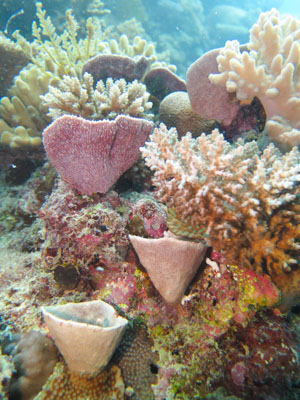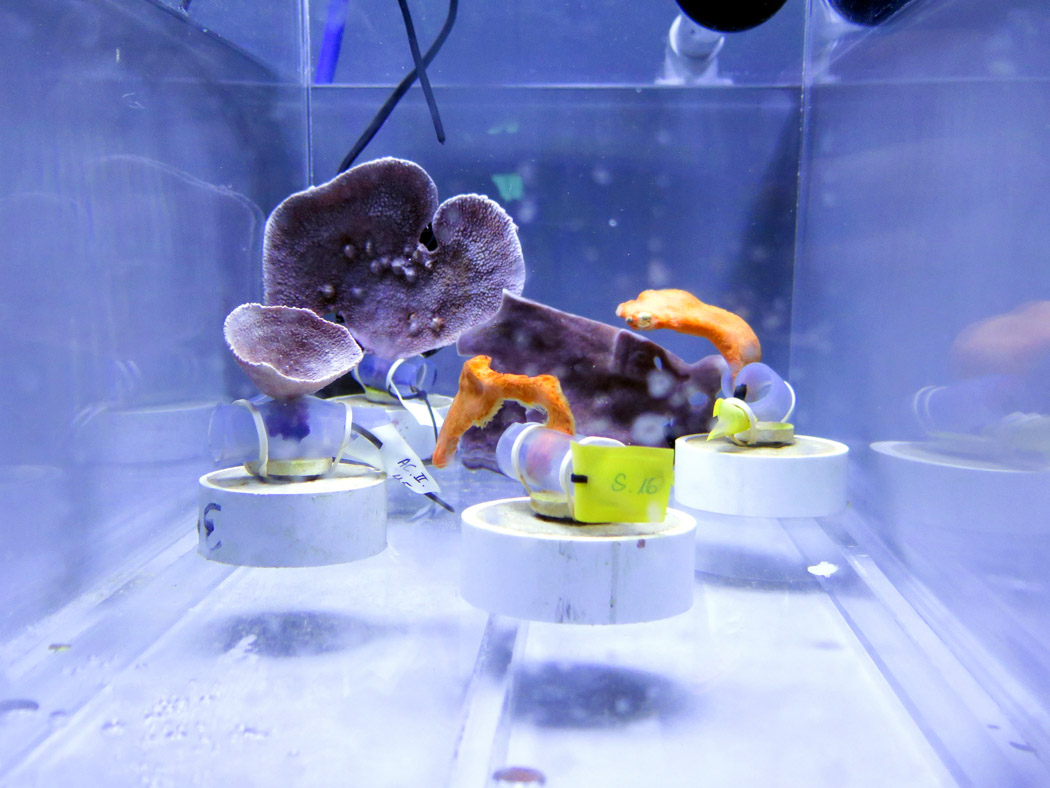Phototrophic sponges may be 'winners' on the Great Barrier Reef under future ocean conditions. Image: Holly Bennett
New research from Victoria University of Wellington and the Australian Institute of Marine Science (AIMS) suggests some sea sponge species are likely to go the distance in the face of global climate change.
The research examined the physiological responses of four Great Barrier Reef sponge species in response to both rising ocean acidification and seawater temperature.
It found that while all four species are sensitive to predicted ocean warming, this sensitivity reduces under ocean acidification for sponges who receive their nutrition from symbiotic microorganisms which get their energy from the sun.
The study was carried out by PhD student Holly Bennett, Associate Professor James Bell and Professor Simon Davy from Victoria’s School of Biological Sciences, alongside AIMS Principal Research Scientist Dr Nicole Webster.
“Our results show that some sponges may be able to deal with future predicted ocean conditions, making them future ‘winners’ under global climate change,” says Ms Bennett.
The study also found that early-life stages of sponges exhibited greater tolerance to ocean warming than their adult counterparts, which is likely to be crucial to the survival and adaptive capacity of some sponges.
“This finding is novel, with most studies demonstrating early-life stages of other organisms such as corals are more vulnerable than adults,” says Ms Bennett.
The physiological responses of four Great Barrier Reef sponges to ocean acidification and increased water temperature were examined. This research was conducted in the National Sea Simulator. Image: Holly Bennett
Undertaken on the Great Barrier Reef, Ms Bennett used the cutting-edge facilities of the National Sea Simulator (SeaSim) to conduct the experiments. SeaSim enabled precise control of environmental conditions across a number of climate change scenarios over extended periods of time.
“Our research confirms the importance of studying the combined effects of ocean warming and acidification, and demonstrates the importance of examining the response of a species across different life-history stages when determining an organism’s overall response to environmental change.”
Associate Professor Bell, a lecturer in Marine Biology, says “This research provides us with a basis for understanding the likelihood of future coral-sponge regime shifts, and gives us an idea of how some future ecosystems might function.”
The study, published last month in high-ranking journal Global Change Biology, is part of a wider project led by Associate Professor Bell and Dr Webster, supported by the Marsden Fund Council from Government funding, managed by the Royal Society of New Zealand.
Ms Bennett will now be researching the relationships between sponges and their associated microorganisms and how these are affected by ocean warming and ocean acidification.
“This next stage of our research will provide us with a greater insight into the importance that sponge associated microorganisms have to sponge’s survival in a high carbon dioxide world.”
Visit Victoria University of Wellington’s website.



